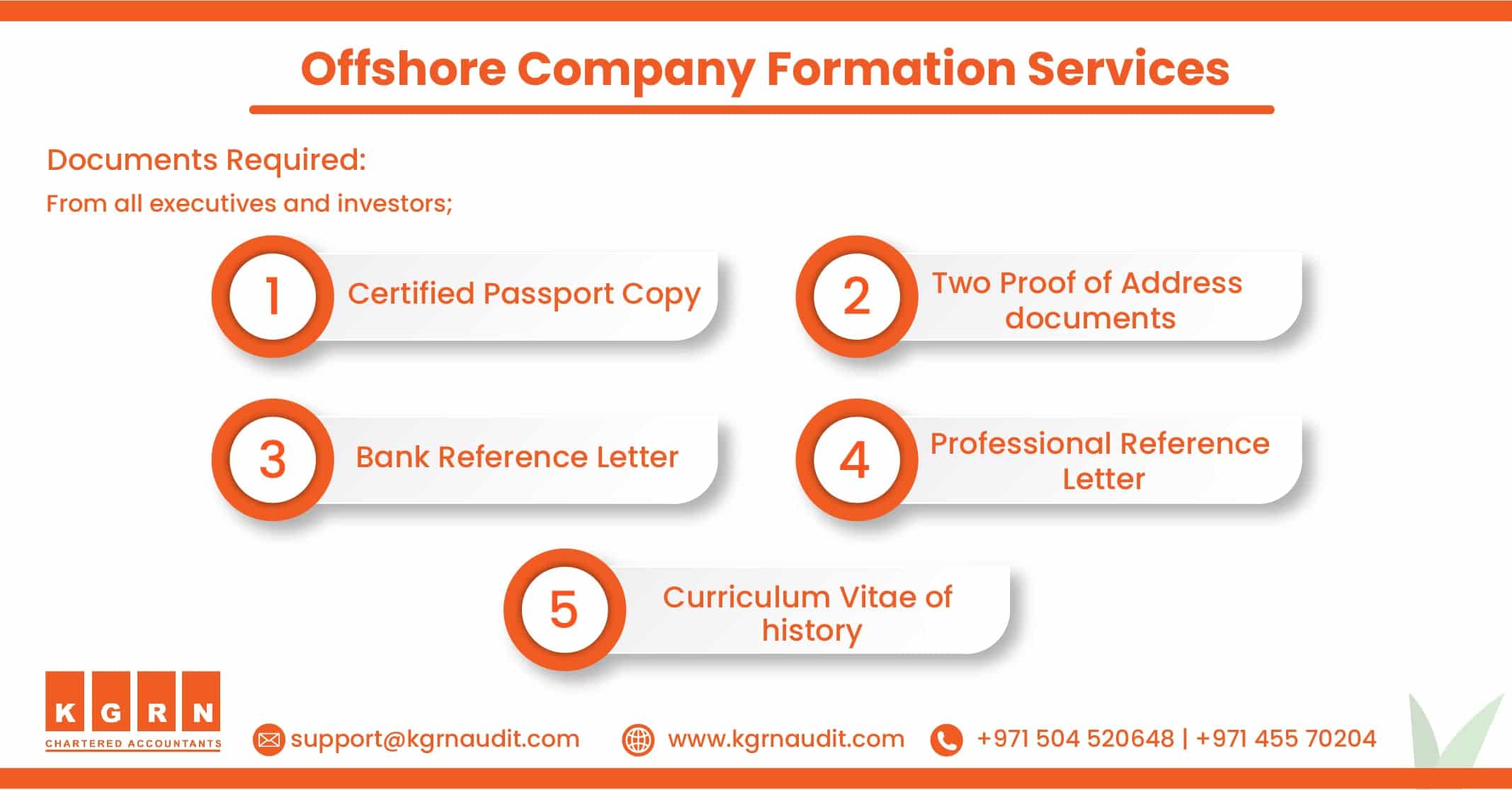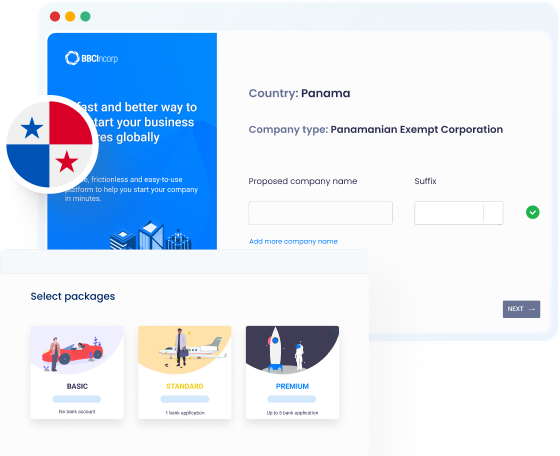Navigating the Globe of International Service: Insights on Offshore Company Formation
Offshore Company Formation presents a critical method for global business procedures. It uses noteworthy benefits, such as tax obligation optimization and boosted personal privacy. The process is not without its difficulties. Recognizing the intricacies of regulative requirements and different territories is vital. As companies think about these options, the steps entailed can considerably influence their long-term success. What are the crucial factors that can bring about reliable overseas management?
Recognizing Offshore Companies: Interpretation and Purpose
Offshore companies have actually ended up being a focal point in worldwide business discussions as a result of their one-of-a-kind legal and financial frameworks. These entities are developed in territories beyond the proprietor's nation of home, commonly with favorable governing environments. Typically, overseas business offer different objectives, such as property protection, tax obligation optimization, and improved privacy. They can run in numerous markets consisting of technology, money, and profession, supplying flexibility for global operations.The defining characteristic of an offshore Company is its ability to conduct company globally while benefiting from lowered tax obligation obligations and governing worries. This framework allures to entrepreneurs and investors seeking to diversify their portfolios and handle threats effectively. Additionally, several offshore jurisdictions supply motivations to draw in foreign investment, leading to an increase in the Formation of these business. Recognizing the meaning and objective of overseas companies is crucial for navigating through the intricacies of international commerce and capital flow.
Key Benefits of Offshore Company Formation
The Formation of an offshore Company offers numerous engaging benefits that bring in entrepreneurs and investors alike. Among the primary advantages is tax obligation optimization; numerous territories give desirable tax prices or exemptions, permitting organizations to take full advantage of revenues. Furthermore, offshore business frequently delight in better privacy, as many jurisdictions have rigorous privacy regulations safeguarding the identifications of Company owners and shareholders.Another significant advantage is property defense. Offshore entities can protect possessions from political instability and financial recessions in the proprietor's home country. Additionally, these companies can assist in international trade, giving easy accessibility to international markets and simplifying cross-border transactions.The flexibility in business framework also interest company owner, as offshore companies can be tailored to meet certain functional demands. On the whole, the strategic Formation of an offshore Company can bring about enhanced financial safety and security, operational performance, and a durable global visibility.

Usual Obstacles in Establishing Offshore Entities
Establishing offshore entities presents numerous difficulties that organizations have to browse. Key issues consist of regulatory compliance, which can vary significantly across jurisdictions, and the impact of social differences on operations. Additionally, organizations have to think about the costs and threats connected with preserving an overseas presence, which can affect general practicality.
Governing Compliance Issues
When they look for to develop offshore entities, navigating governing compliance problems poses significant obstacles for services. Each territory has its own collection of guidelines and laws, which can differ commonly and might be challenging to browse. Business typically deal with obstacles pertaining to tax obligation compliance, anti-money laundering guidelines, and coverage demands. In addition, changes in worldwide tax obligation legislations can produce unpredictability, making it vital for services to stay upgraded on compliance commitments. Failure to stick to these policies can result in serious fines, consisting of fines and reputational damage. Subsequently, engaging and understanding the legal structure with neighborhood professionals is essential for successful offshore operations, ensuring that businesses can operate within the confines of the law while maximizing their international strategy.
Social Distinctions Effect

Price Considerations and Threats
Steering via the economic landscape of offshore entity Formation offers various price considerations and inherent threats. Preliminary arrangement prices commonly consist of legal costs, registration expenditures, and compliance costs, which can build up considerably. Furthermore, continuous upkeep expenses such as annual charges and accountancy solutions should be factored in. In addition, rising and fall regulatory atmospheres in various jurisdictions posture risks, potentially bring about unexpected expenses or legal complications. Services may additionally come across challenges connected to taxation, financial, and reputational problems, which can influence profitability and operational efficiency. Prospective business owners must perform complete due diligence and monetary projecting to alleviate these threats and ensure sustainable development. Comprehending these expense considerations is important for effective offshore company ventures.
Steps to Establish an Offshore Company
Developing an overseas Company includes numerous essential actions that require cautious consideration. Trick elements include making certain and choosing the appropriate jurisdiction conformity with neighborhood laws, alongside gathering essential documentation. Recognizing these elements is vital for an effective overseas company setup.
Selecting the Right Territory
Picking the right jurisdiction is vital for anybody seeking to establish an offshore Company, as it can significantly impact business's legal commitments, tax obligations, and functional ease. Various aspects need to be considered, including the political security, regulatory environment, and tax obligation rewards provided by potential jurisdictions. Popular options usually include nations with beneficial tax programs, such as the British Virgin Islands or Cayman Islands, because of their reduced or no tax obligation rates. Additionally, the simplicity of working and the track record of the territory can influence capitalist confidence and market accessibility. Eventually, an educated decision based upon complete research study will guarantee the overseas Company is placed for long-term success and compliance with global standards.
Needed Paperwork and Conformity
When setting up an offshore Company, understanding the essential documents and conformity needs is essential to guarantee a smooth process. Key documents normally consist of a certificate of unification, a memorandum and write-ups of association, and proof of identification for supervisors and shareholders. Some territories might need extra information, such as organization strategies or bank referrals. Compliance with regional regulations is important, which commonly involves assigning a signed up agent and preserving a registered office. Normal reporting and adherence to tax obligation obligations must additionally be taken into consideration. Failing to follow these requirements can cause charges or perhaps dissolution website of the Company. Comprehensive preparation and appointment with legal experts can assist browse these complexities properly.
Selecting the Right Jurisdiction for Your Offshore Company
Exactly how can one determine the most ideal jurisdiction for an overseas Company? Choosing the ideal jurisdiction needs mindful consideration of multiple elements. The legal and tax obligation environment plays an essential duty; territories with beneficial tax routines might enhance company profitability. Additionally, the political security and economic environment of a location can affect long-lasting business viability.Another important aspect is the accessibility of monetary solutions and financial facilities, which promote smooth operations. Potential local business owner need to likewise take into consideration the simplicity of doing service, consisting of the speed of enrollment and the clearness of regulations.Furthermore, language barriers and social distinctions can affect procedures; therefore, aligning with a jurisdiction that lines up with organization objectives and personal comfort is essential. Eventually, thorough research and specialist guidance can guide entrepreneurs in making an informed decision that aligns with their tactical objectives.
Conformity and Regulatory Factors To Consider

Finest Practices for Managing an Offshore Company
Managing an offshore business needs critical planning and thorough execution to enhance performance and alleviate dangers. Developing a robust compliance structure is essential to navigate differing guidelines throughout jurisdictions. Routine audits and risk analyses help recognize potential vulnerabilities.Moreover, leveraging regional experience through partnerships with neighborhood experts can enhance operational effectiveness and social understanding. Using modern technology, such as cloud-based management systems, enhances interaction and information administration, enabling far better decision-making. In addition, maintaining clear economic records and guaranteeing timely tax obligation filings are important to copyright the Company's integrity. Purchasing team training and development promotes a proficient labor force, promoting development and adaptability.Finally, establishing clear efficiency metrics and key efficiency indications (KPIs) aids evaluate business progress and educate strategic modifications. By adhering to these best practices, firms can successfully handle their offshore operations, making certain long-term success and sustainability in a competitive international industry.
Frequently Asked Questions
What Is the Cost of Creating an Offshore Company?
The expense of creating an overseas Company differs commonly depending upon jurisdiction, legal needs, and solutions required. Commonly, costs can range from a few hundred to numerous thousand dollars, including enrollment, conformity, and annual fees.
Just how Lengthy Does It Require To Develop an Offshore Entity?
The time required to establish an overseas entity differs considerably, normally ranging from a few days to numerous weeks (offshore company formation). Aspects influencing this period consist of territory, called for documentation, and the effectiveness of the provider entailed
Can People Form Offshore Companies Without a Company Companion?
Individuals can without a doubt develop overseas companies without an organization companion. Numerous territories allow single-member entities, equipping entrepreneurs to develop and handle their companies individually, while still taking advantage of possible tax obligation benefits and lawful securities.
Are There Any Type Of Tax Obligation Advantages for Foreign Investors?

What Type of Organizations Frequently Utilize Offshore Business?
Offshore business are frequently made use of by various fields, consisting of ecommerce, modern technology, and finance. These entities usually serve purposes such as property protection, tax optimization, and privacy, appealing to both international firms and individual business owners. Offshore companies have ended up being a focal point in global business discussions due to their unique lawful and economic frameworks. They can operate in multiple markets including modern technology, profession, and money, supplying adaptability for worldwide operations.The specifying attribute of an offshore Company is its ability to perform company worldwide while profiting from minimized tax liabilities and governing problems. Furthermore, offshore firms often appreciate better discretion, as numerous territories have rigid personal privacy legislations protecting the identifications of Company proprietors and shareholders.Another significant benefit is asset defense. These companies can facilitate international profession, offering very easy access to global markets and streamlining cross-border transactions.The flexibility in business framework also appeals to organization owners, as offshore firms can be tailored to satisfy specific functional requirements. Choosing the appropriate jurisdiction is vital for anybody looking to establish up an offshore Company, as it can significantly affect the service's lawful commitments, tax responsibilities, and operational convenience.